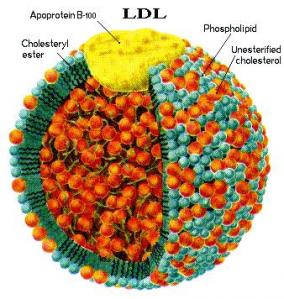Low-Density Lipoprotein Is Actually 'Good', Say Researchers
 A new research from Texas A&M University may surprise you by its outcomes.
A new research from Texas A&M University may surprise you by its outcomes.
New study disclosed that low-density lipoprotein (LDL) or "bad cholesterol" has a good side when it comes to grownups who work out on a regular basis.
Low-density lipoprotein (LDL) is almost always mentioned as the "bad" cholesterol as it inclines to ramp up in the walls of arterial blood vessels, resulting in a retardation of the blood flow, which often causes heart problem and heart failures.
However, researcher Steve Riechman from the Texas A and M University said, "LDL serves a very useful purpose. It acts as a warning sign that something is wrong and it signals the body to these warning signs. It does its job the way it is supposed to."
Riechman carried out the research with fellow workers from the University of Pittsburgh, Kent State University, the Johns Hopkins Weight Management Centre and the Northern Ontario School of Medicine.
The group analyzed 52 adults aged between 60 years to 69 year who were in generally good physical condition but not physically active, and none of them were taking part in a training program.
The research indicated that after quite forceful workouts, the study partakers who had gained the most muscle mass also had the highest LDL (bad) cholesterol levels, which Riechman said, "an unexpected outcome and one that shocked us."
"It shows that you do need a certain amount of LDL to gain more muscle mass. There's no doubt you need both - the LDL and the HDL - and the truth is, it (cholesterol) is all good. You simply can't remove all the 'bad' cholesterol from your body without serious problems occurring," he said.
"People often say, 'I want to get rid of all my bad (LDL) cholesterol,' but the fact is, if you did so, you would die.
"Our tissues need cholesterol, and LDL delivers it. HDL, the good cholesterol, cleans up after the repair is done. And the more LDL you have in your blood, the better you are able to build muscle during resistance training. The bottom line is that LDL - the bad cholesterol - serves as a reminder that something is wrong and we need to find out what it is," he added.
The results of the research were released in the Journal of Gerontology.